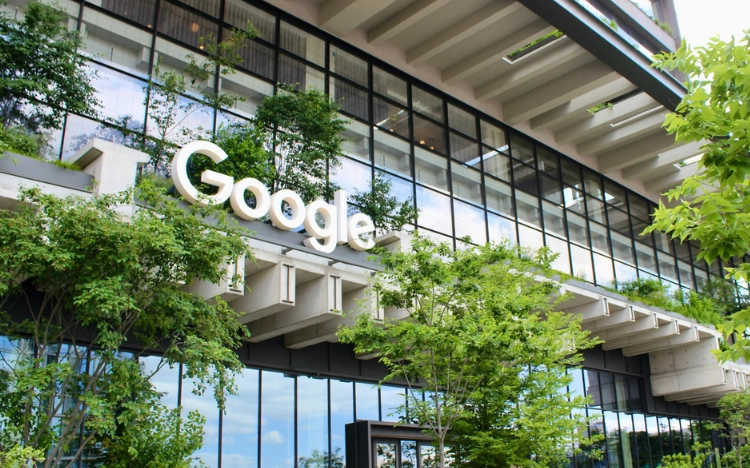Top US-based employers of international talent including the likes of Google, Amazon, Infosys, and IBM, sponsored fewer H-1B visas in 2024, according to data recently published by the United States Citizenship and Immigration Services (USCIS).
The H-1B visa is key for international students seeking to stay and work in the US after they graduate. Offering the ability to stay in the US for up to three years, with the possibility of extending for another three years, H-1B visa sponsorship is highly coveted among foreign nationals.
To obtain an H-1B visa, applicants must be sponsored by an employer who will petition the USCIS on their behalf. The leading H-1B visa sponsorship companies are overwhelmingly tech firms, while multinational consultancies also sponsor thousands of talented workers each year.
H-1B data for the 2024 fiscal year, which runs from October 1st to September 30th, shows the number of visa approvals* listed by the USCIS was down at all but one of the top 15 companies that sponsor H-1B visas.
At a number of key H-1B sponsorship companies, such as Amazon and Cognizant Technology Solutions, visa sponsorships were down by thousands.
Breaking down H1B data: 2024 vs 2023
As in previous years, Amazon sponsored the most H-1B visas in 2024, according to the USCIS. Without including subsidiaries such as Amazon Web Services and Amazon Development Centers, the Big Tech firm sponsored more than 7,000 H-1B visas. However, this number was significantly lower than in 2023, when Amazon’s H-1B visa sponsorships exceeded 11,000.
Infosys, an Indian multinational digital services consulting firm that recruits thousands of US-based hires each year, sponsored around 5,900 H-1B visas in 2024, compared to more than 7,300 in 2023.
At Tata Consultancy Services, a firm that’s also headquartered in India but employs thousands of US-based employees, there were around 1,600 fewer H-1B visas sponsored in 2024.
Other leading tech companies, including Big Tech firms Google and Microsoft and technology consultancies Cognizant Technology Solutions and HCL America, saw four-figure decreases in H-1B sponsorship.
EY and Deloitte Consulting, both part of the Big Four accounting and professional services firms and among the top sponsors of H-1B visas, also saw approvals fall. EY sponsored more than 2,500 H-1B visas in 2023, versus around 2,100 in 2024; while at Deloitte Consulting the figure was around 1,900 this year after being close to 2,700 in 2023.
In fact, among the top 15 H-1B sponsorship companies in 2024, only Meta saw approvals rise. The firm, which owns social media platforms such as Facebook and Instagram, increased H-1B sponsorships by around 400.
READ: The Top 15 Companies That Sponsor H1B Visas
©MDoculus/iStock
H1B data analysis: what’s causing this trend?
Decreasing H-1B sponsorship among top employers comes in the wake of challenging conditions for companies operating in both the technology and consulting sectors over the past two years.
In the first half of 2023, tech firms reduced headcounts as inflationary pressure created a challenging economic environment. Meta, Google, Amazon, and Microsoft all announced individual rounds of layoffs cutting more than 10,000 employees.
Consulting firms, too, have been forced to take measures such as implementing salary freezes and delaying start dates for new hires in response to a pandemic-induced hiring boom and a slowdown in demand for consulting services.
A reduction in H-1B visa sponsorship could be influenced by these external factors. “Large tech firms have been in the process of restructuring their operations after massive hiring in previous years,” said Mishita Mehra, an expert in skilled immigration policies who teaches macroeconomics at University of Richmond Robins School of Business.
The approaching US election could also be influencing company policies. During his previous presidential term, Republican nominee Donald Trump issued an executive order temporarily banning the issue of H-1B visas. The ban was automatically lifted 10 months later under the Biden administration.
“Part of this trend could be due to uncertainty over the election outcome and the impact on H1-B regulations, for instance, the increase in H1-B denial rates we saw in 2017-19,” Mishita added.
There is a limit on the number of H-1B visas that can be issued each year. Currently, the cap is 65,000, with 20,000 additional visas for foreign nationals who graduate with a master’s degree or doctorate from a US institution of higher learning, including MBA and business master’s degrees.
While the cap remains the same, recent changes in the H-1B approval process introduced by the USCIS could be influencing the numbers. “An individual who has offers from two different employers would no longer be counted twice in the lottery, which would automatically reduce applicant numbers,” said Mishita.
Nalisha Patel, regional director for the Americas and Europe at the Graduate Management Admission Council (GMAC), pointed out that the decline in sponsorship at the leading H-1B companies does not mean fewer opportunities for foreign nationals seeking to work in the US.
“As the H-1B has a fixed cap per year, the fact that there has been a decrease at these top institutions can suggest that the spread of sponsors is broader, allowing for more diversity of the job roles and functions within the economy factoring in for sector fluctuations,” she said.
“Foreign nationals should be assured that there is the same amount available and that this shift should mean there are more types of companies and roles available.”
*Data for this article was sourced from the United States Citizenship & Immigration Services for the 2024 fiscal year. Figures reported are the number of H-1B petitions listed under 'initial approval' and 'continuing approval'. 2024 figures quoted for Amazon are a combination of those reported for AMAZON.COM SERVICES LLC and AMAZON COM SERVICES LLC.




